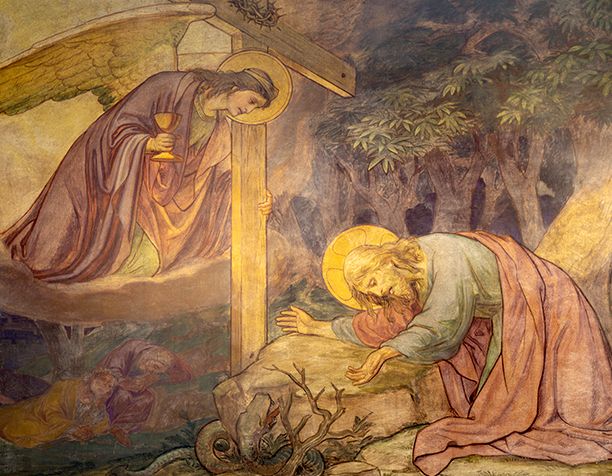“My god, my god, why have you forsaken me?” (Mark 15:34; Matthew 27:46). Writing about these words of Jesus on the cross, James Martin, SJ, asked the following questions: “What are we going to make of these extraordinary words? Can it be true that Jesus thought that God the Father had forsaken Him? Is it possible that Jesus doubted the love of the one He called Abba, ‘Father’? Did Jesus give up hope when He was crucified? Did He despair when He was on the cross?”
The experience I had when I was nine years old, small as it was compared to the experience of Jesus, helped me understand what Jesus felt. My mother died at the age of 45 and for a long while I missed her a lot. I felt her absence, I felt abandoned. Then, thanks to inputs of faith I received in my family, through readings and prayer, and thanks to several inputs by a gentle priest, I directed my feelings towards believing that my mother was present in a way that was deeper than before. My relationship with her has grown in meaning and intensity. She is present to me and I am looking forward to the time when I will see her in heaven. I remember that many times, in dangerous situations, especially when I was In Uganda, I often shouted ‘Mother, Mother’ having in mind the Blessed Mother and my mother. Both of them were really present to me.
Agony Became Prayer
The words of Jesus we are considering opens an abyss of suffering. During His entire life, He had found strength in the awareness of the Father’s presence and in doing His will. And now? Now He was completely stripped naked of everything. Nothing was left but solitude and aridity. And yet, one more time, we are faced with the paradox of Christ since we learn from His words how He transformed even the deepest desolation into prayer. When it seemed He was completely defeated, He prayed with the words of Psalm 22. The agony of Calvary became prayer. In this apparent absence of God, Jesus addressed Himself to Him. The cry of extreme suffering became a profound trust in God the Father. The Jewish theologian Pinchas Lapide wrote: “The reaction of the onlookers who were near the cross is a clear indication that Jesus recited the whole psalm. ‘The man is calling Elijah’ (Matthew 27, 46) they said. Matthew introduces Jesus’ cry with the expression, ‘Jesus cried out in a loud voice’ (Matthew 27, 47). For the devout Jew, the expression is a clear indication that Jesus recited the whole Psalm. The first verse of a psalm always calls for the whole psalm. This means that Jesus presented to the Father His anguish and, at the same time, His profound trust in Him. Jesus was sure that the Father was keeping Him in His embrace”.
James Martin, SJ, expressed himself along the same line, referring to Psalm 23. One may say, “The Lord is my shepherd” and trusts that the hearers would be familiar with the rest of the Psalm and its overall message. In other words, the saying “The Lord is my shepherd” is taken not just as an affirmation of the Lord as a shepherd, but as a shorthand for the entire Psalm. As for the cry of Jesus from the cross, “My God, my God, why have you forsaken me?” it can be taken as a way of using that line to express His confidence in the Father, a confidence in God which is expressed in the whole Psalm. We can be sure then that since Jesus has had an intimate relationship with the Father, He could not have lost His faith in His presence in this dark moment, even though we have to distinguish between believing in the Father’s presence and feeling it.
A Cry Of Abandonment
There is another interpretation of this cry of Jesus by Anselm Grun, a German Benedictine monk. According to him, the cry of Jesus was really a cry of a deeply felt abandonment leading to a profound trust that the Father would remain faithful to Him and that His embrace surrounding Him would last forever. Again, according to Anselm Grun, the cry of Jesus is an invitation for us to never suppress our own cry when we feel abandoned for one reason or another, and to plunge it into the sense of abandonment of Jesus so that it may lead us into confessing God’s goodness.
In a book entitled, Come, Be My Light, Mother Teresa of Calcutta speaks at length about her feelings of abandonment. She was able to remain faithful to her call by God to serve the poor through prayer and dedication. May we follow her example of faithfulness at any cost trusting in the faithfulness of God.





















